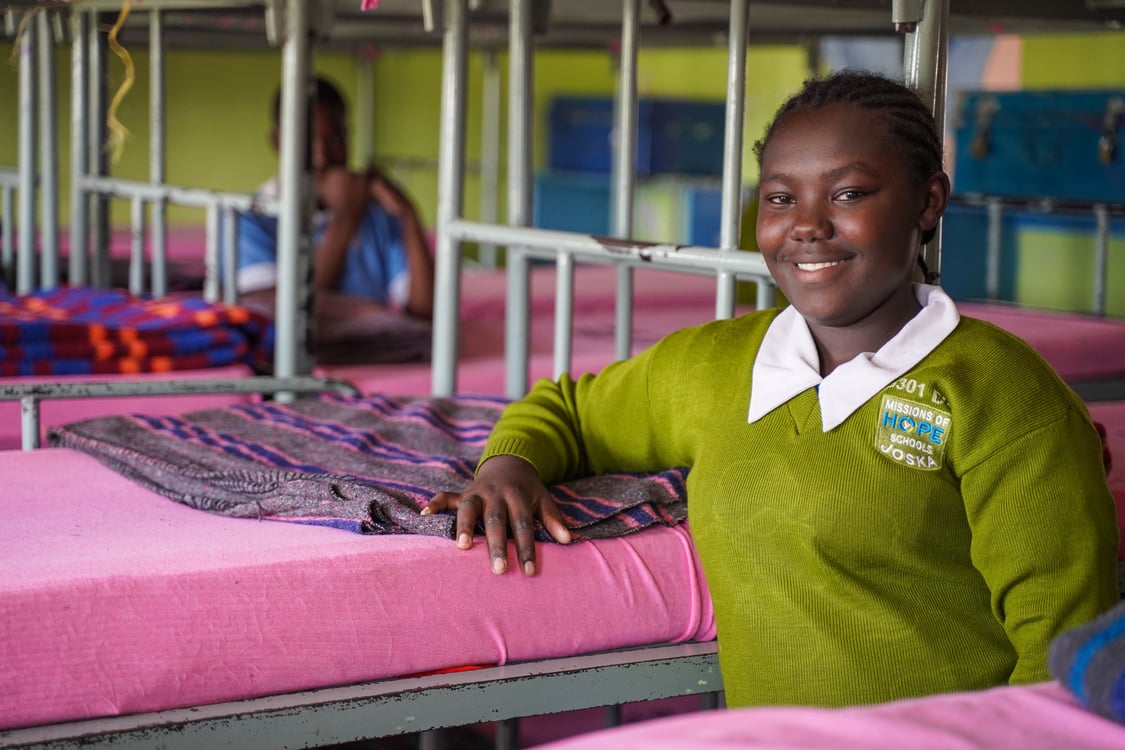
Alice Finds New Hope In Joska
It’s a warm Tuesday morning when my colleagues and I leave the MOHI Pangani center for Joska for an interview we have with a student there. Our crew comprises of two writers and two photographers. For two of us, this is going to be our first-time visit to the center and we excitedly strap-in for the hour-long journey.
The sun is out in its majestic glory when we do finally get to Joska. We make our way to the headteacher’s office and are warmly received by Madame Lilian. She has been expecting us and wastes no time in facilitating us to meet with her student.
…..............…...
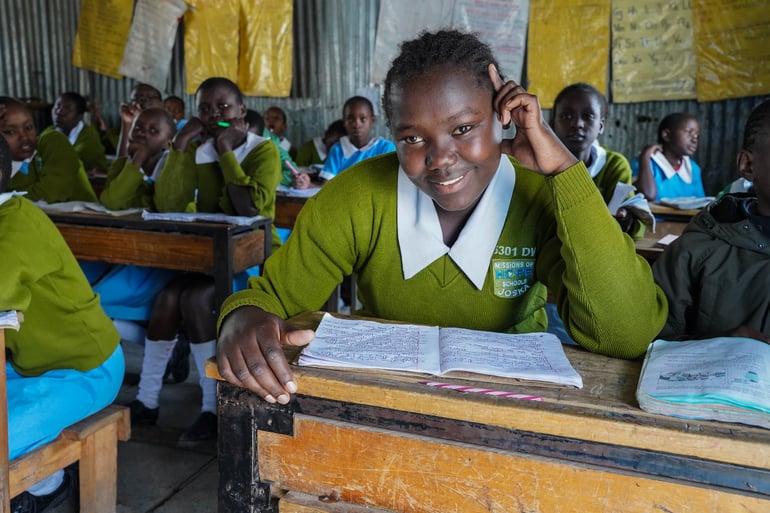 Alice Nduta is a 13-year-old girl who is in grade 6. She appears really shy when we first meet her, probably due to the attention we inadvertently bring her as we troop into her class while learning is in session.
Alice Nduta is a 13-year-old girl who is in grade 6. She appears really shy when we first meet her, probably due to the attention we inadvertently bring her as we troop into her class while learning is in session.
Our cameraman gets to work and takes a couple of shots of Alice in class. As this is going on, the recess bell rings and students stream-out of their classes.
The headteacher organizes a few of Alice’s dorm-mates and we go to take shots of the students’ dormitories; just to get a feel of how life is for the student who is still settling into the school.
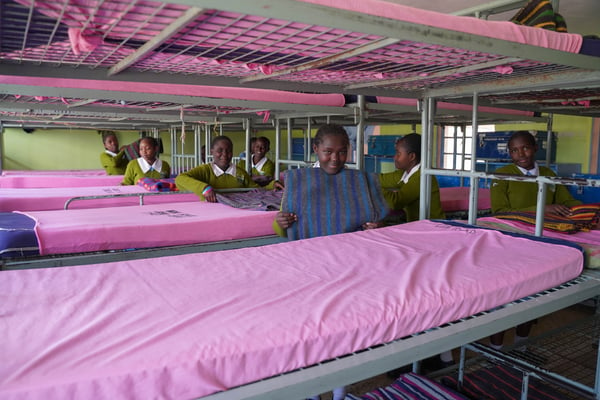
Once we are done, and after taking a cup of tea; we settle down for the interview.
A miserable life
Alice starts by telling me that both her parents are alive but they are separated and have been since she was a small baby. Her mother lives in Nairobi’s Pangani area and her father in rural Murang'a. She has a five-year-old sister, who is in grade one at MOHI’s Pangani center.
When I ask Alice to describe what her life has been like, I am astounded when she gives me just one word.
“Miserable,” she says.
“What do you mean by miserable,” I ask looking intently at her face as I observe the different emotions playing out there.
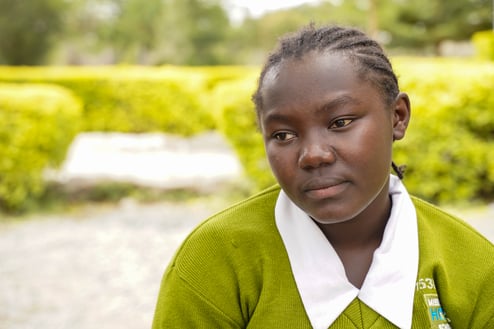
“I may have just one sibling right now,” she says, “but I once had five. I have lost four; three brothers and a sister.”
Alice tells me she first lost her immediate younger brother in 2010 when she was four years old. He died of a short illness when he was still a toddler. Then in 2014, her mother had twins - a boy and a girl. They died in 2015 at just six months old; they choked while sleeping. In this same year, Alice had a nasty road accident that almost cost her life.
“I was walking by the road when a vehicle veered off and hit me. I ended up staying in hospital for two months and after I was discharged, I stayed home recuperating for another three months. This was also the year my mother started drinking really heavily,” she says.
Up to and until this point, Alice’s home had not been your typical conventional household and her mother’s drinking only came to further compound the problem.
“Mom is the only person we were looking up to for our provision. When she started drinking, it would often mean that we would go without food and this still happens today. When she gets drunk, she gets really loud; causes a lot of drama in the neighborhood and is generally a nuisance.”
However, despite these challenges Alice tells me life was not entirely unbearable because she had her big brother. At 19 years old, he already had his own family but would look out for his younger sisters. He would make sure no one in the neighborhood was inappropriate with them and would chip-in to help meet some of their basic needs. Sadly, this changed in April this year when he died; stabbed to death right in front of Alice.
At the mention of her brother, Daniel, Alice tears up quickly and becomes very emotional. “We were very close,” she says. Barely able to speak over her tears she tells us how her brother died.
A traumatic experience
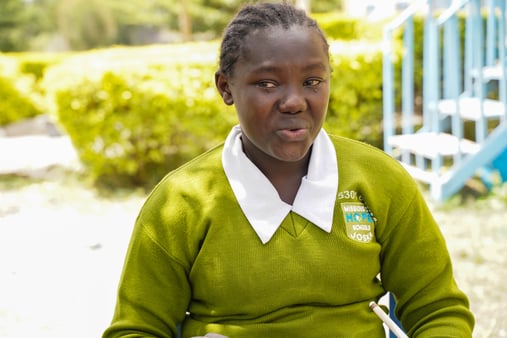
It all started with an argument with a neighbor that turned deadly after the man felt aggrieved following the confrontation.
When Daniel’s wife, then eight months pregnant, tried to intervene; the neighbor hit her and she fell landing on her belly. This enraged Daniel and the verbal argument soon escalated to a physical brawl attracting some of Daniel’s friends who came to his aid.
Seemingly overpowered, the aggressor left for his house and it appeared like all was well only for him to return with a knife. He attacked and injured Daniel’s friends then lunged at the young man stabbing him four times.
“When I saw what happened to my brother, I rushed out to seek assistance so we could take him to hospital,” Alice recounts while wiping the tears from her eyes.
“The first person I approached was someone I considered to be my brother’s friend. I thought he would help me but he said he cannot ferry a wounded person on his motorcycle. He instead gave me a number to call an ambulance which I did. When they came, they said my brother was already dead. I do not remember what happened after that - I just collapsed.”
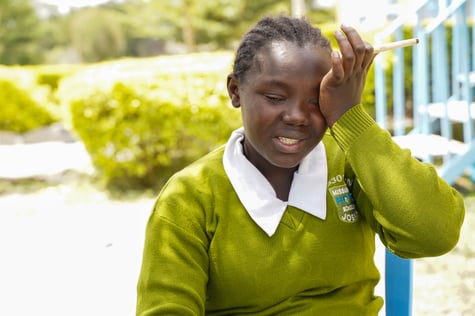 The young girl goes silent at this point and I can see her struggling to get back her composure. It is obvious that this line of questioning has stirred up some painful memories and I allow her to take as long as she needs. Finally, she says...
The young girl goes silent at this point and I can see her struggling to get back her composure. It is obvious that this line of questioning has stirred up some painful memories and I allow her to take as long as she needs. Finally, she says...
“My brother’s death hit us all very hard. My mother was especially affected. She simply was not able to cope, she would cry all the time and even started becoming hostile towards my sister and I. I did not realise how much I was affected until schools reopened in May. I was not able to concentrate in class, I kept replaying what happened on that day.”
A change
The trauma of witnessing her brother’s murder and the environment she was living in where her primary caregiver was constantly drunk were some of the factors that saw Alice transferred to the Joska center. The MOHI social worker was able to convince Alice’s mother that it was in her daughter’s best interest to go to a school where she would be able to focus on her studies.
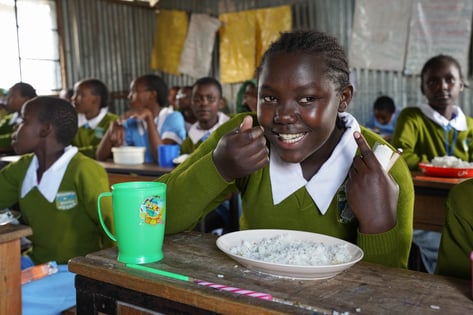 “Here I have more peace,” Alice tells me. “I have more time to concentrate on my studies and I do not have to worry about what I am going to eat or if I am going to eat. I also really look forward to the devotions we have here, they have really helped me grow in my faith.”
“Here I have more peace,” Alice tells me. “I have more time to concentrate on my studies and I do not have to worry about what I am going to eat or if I am going to eat. I also really look forward to the devotions we have here, they have really helped me grow in my faith.”
Alice has also developed a good relationship with the headteacher.
“Having teacher Lilian here has been helpful to me because I can talk to her at anytime and concerning anything. This helps me when I feel overwhelmed.”
As we wrap up the interview, the headteacher tells me they are glad to have Alice as part of the Joska community.
“She is an obedient, disciplined girl and has settled in well. She has already made friends and is doing well academically. If she receives the right support, Alice can really excel in her studies and we are going to do our best to ensure this happens. ”
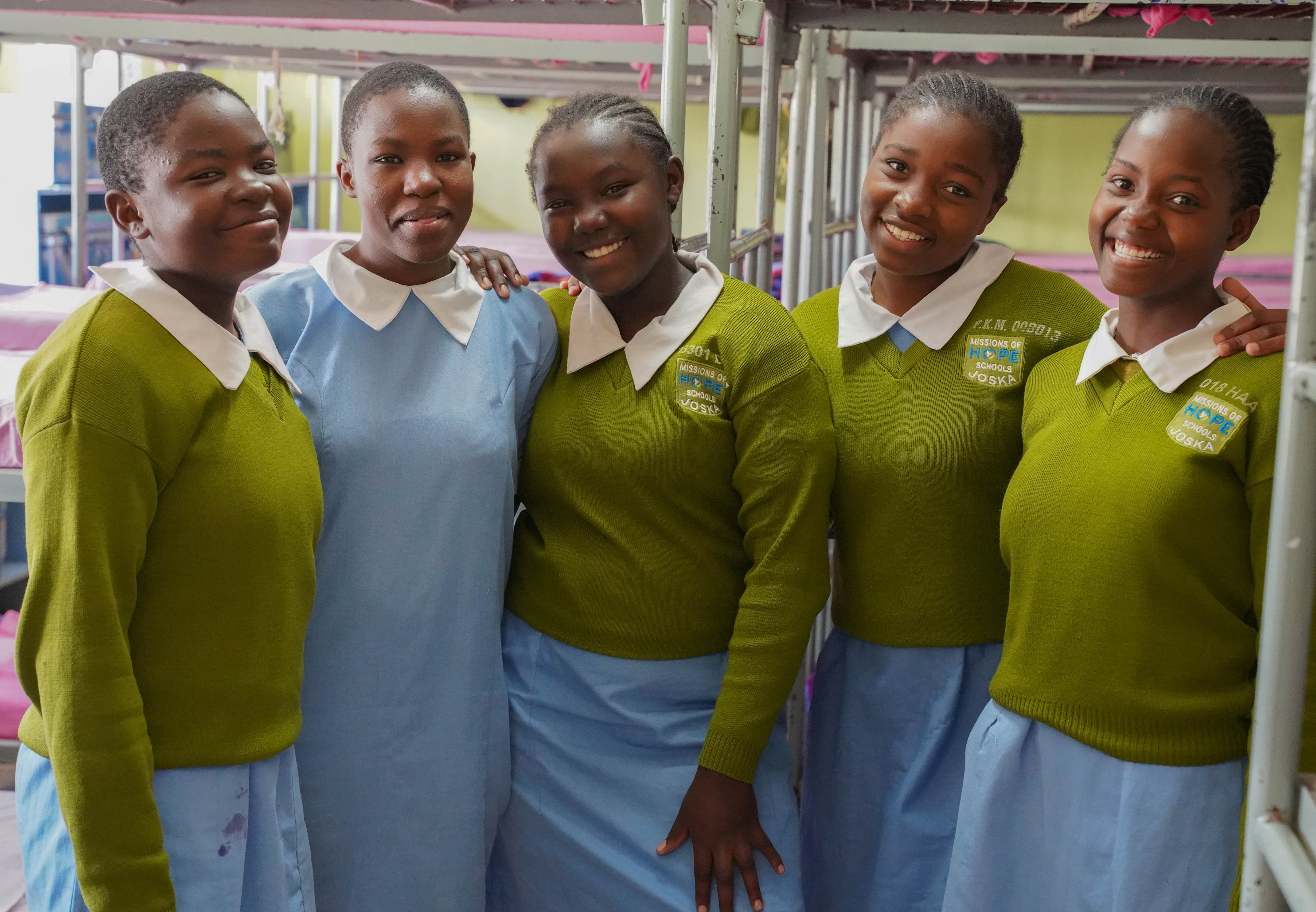 Pray with us as we continue to work with Alice and her family. Our desire is to see complete transformation in these lives as they experience the love of Christ.
Pray with us as we continue to work with Alice and her family. Our desire is to see complete transformation in these lives as they experience the love of Christ.
…..............…...
Partner with us in the work God has called us to do among children and families living in disadvantaged communities to transform their lives through hope in Christ.

Comments